Interview with a Biophysicist: Andy Resnick
Let me introduce you to Andy Resnick, a long time Science Advisor at Physics Forums.
Tell us a little bit about how you developed an interest in biophysics
That’s a good question, and I’m not sure how to answer. I’ve worked in the ‘in-between space’ for many years- for example, optics is in-between physics and electrical engineering, soft matter is in-between physics and materials science, physiology is in-between biology and medicine. Why I am drawn to the in-between? It’s probably a combination of psychological defect and childish defiance. The research I do now (ciliary mechanosensation) is simply how my prior interests have combined and evolved- that, and the luck of being the right person in the right place at the right time. I can think of specific instances where if I had taken a different position, I would now be working on Bose-Einstein condensates or in another case, EUV lithographic sources.
What is your most treasured professional accomplishment or experience?
I am most proud that I continue to maintain an externally-funded research program. I most treasure the professional relationships with colleagues. I’ve been very lucky to work with world-class scientists, engineers, and technicians, and I’ve learned from all of them. I’ve been lucky to have lots of great experiences as well: trips on NASA’s KC-135 vomit comet; attending a Gordon Conference in Ill Ciocco, Italy; spending nights on Air Force firing ranges acquiring data during live-fire exercises; spending a week at Brookhaven National Lab as an undergrad; dipping my hand in molten lead during our SPS chapter’s annual “Day of Dangerous Demos”. I look forward to many more opportunities!
Do you enjoy research or teaching more, why?
Ha! That’s a loaded question. It’s important to know that successfully earning tenure means achieving balance between the two. Both can be highly frustrating and highly rewarding. At the same time. For nearly the same reasons.
Tell us about your time at the NASA Glenn Research Center
It was awesome for a few years, then it wasn’t and fortunately I was able to leave on my own terms. I was a technical lead to design and build a fully automated microscope (Light Microscopy Module) for use on the ISS to carry out experiments on fluids and colloids. The LMM launched about 10 years ago and is still in operation- folks send me the occasional photo of an astronaut using the facility. Among other things, I took apart and rebuilt a top-end research microscope and designed the laser tweezer module. After the ‘breadboard’ was built, a colleague and I did all of the optical testing and characterization. There were about 20 of us trying to solve problems ranging from filling and sealing samples and motorizing all manual microscope operations to designing target-recognition and auto-focus algorithms. My job was to make sure that in the end, the LMM could meet specifications (I also helped write the specifications). There was a real sense of “try anything, see what works”, because nobody had done anything like this. Being encouraged, supported, and pushed to develop new approaches to solve difficult problems is very freeing and creates an exciting, trusting, collegial environment. I left when the ‘brassboard’ and flight drawings were complete, the only remaining task was to build and ship the flight instrument (techs do that, not PhDs). There’s great people working at Glenn, great facilities doing cutting-edge research, and I maintain contact with them. The mock-up we built (for show) is currently residing in the Cleveland Science Center.
How did you get interested in photography?
I had a (film) camera as a teen but couldn’t use it properly- nearly all my photos were either completely overexposed or underexposed. In undergrad and grad school, I used CCD-TVs that were starting to come out. Post-PhD, I worked with a wide variety of digital sensors: infrared, hyperspectral, millimeter wave, LIDAR, ultraviolet, polarimetric. Moving to microscopy at NASA was very natural, and I stay current with as many different imaging techniques- optical and computational- as possible. About 8 years ago, I was given a free Zeiss Ultraphot III microscope- working sources, full sets of epi-DIC, epi-darkfield, luminar, and epi-luminar lenses. Free because the engineers at the company couldn’t figure out how to attach a digital camera! When I bought a full-frame DSLR to compliment the other (monochrome) digital cameras I had in the lab, I was brought full-circle back to photography. Only now I have the benefit of a PhD in optics and years of experience with various imaging technologies.
What telescope/camera do you use and what would you recommend for people interested in starting?
Here’s my recommendation- get a camera that you aren’t afraid to use all the time, take anywhere, drop or otherwise damage. Then use it until you break it and don’t feel bad about breaking it. My choice of camera and lens may not be appropriate for anyone else- I take advantage of my specialized training. Here’s what I use: A full-frame sensor to maximize my field of view and fast lenses to control depth of field. Other than my 50mm f/1.8 lens from back in the day, I use 3 photographic lenses: a wide-angle rectilinear lens (15mm f/2.8), a 85mm f/1.4 lens that I typically use instead of the 50/1.8, and a 400mm f/2.8 telephoto with 2x adapter that doubles as my telescope. I have adapters for microscope objectives (Zeiss Luminars) and a bellows-like system kludged together for macrophotography. I also occasionally use gratings and filters- nothing fancy- to do things like take pictures of the sun or capture the spectrum of a light. Aside from my ‘serious’ camera, Santa/karma sent me a GoPro-ish camera which I take to the beach. Being able to shoot underwater video is mind-blowing. Tossing the thing into the air also generates interesting results.
What objects in space are your favorite to capture?
Being in Cleveland, the fact that I can see anything at all through the light pollution and poor viewing makes imaging anything worthwhile- the joy is in the making. Honestly, I get a thrill just from realizing that what I can do in my backyard in a single evening, using modest equipment, gives me images as good as what used to require extremely expensive equipment and weeks/months of observation time. Being able to acquire an image and use online databases to identify various blobs in the image instantly (or vice versa- pick an object then go find it)- it’s magic. Not too long ago, people would spend years earning a PhD doing that. Plus, it’s nice to relax outside and enjoy the night sky.
What are some of your favorite musicians, movies, books… etc?
I favor aggressive, challenging, and offensive works of art- the lists are too long so I’ll omit the ‘classics’. There’s a video of my band covering a G.G. Allin song somewhere out there on the iWebCloudNet… I listen to music that I can play or wish I could play: Mars Volta, Melt-Banana, Tool, Captured! By Robots for rock; John Coltrane, McCoy Tyner, Kamasi Washington, Rangda for jazz; classical = Cleveland Orchestra, accept no substitutes! Hip-hop/R&B: Janelle Monae, Die Antwoord, M.I.A; the experimental/unclassifiable: Bjork, Negativland, Hella, Acid Mothers Temple. I think the most exciting scored music is currently being written for anime/videogames, for example work by Alexandre Kassin, Kiyoshi Yoshida and Taku Iwasaki. Same for movies/tv- dark, disturbing, and violent: Ghost in the Shell, Tokyo Ghoul, and Irreversible. Favorite directors include John Waters, David(s) Lynch and Cronenberg, and Guillermo del Toro. My wife and I regularly attend the Cleveland Film Festival and every year there’s a bunch of really memorable movies from excellent new artists- The Coffin Maker especially stands out from last year. Even so, I am a sucker for blockbuster 3D special-effects movies. Reading is “interesting”- I have to read a lot- unfortunately, 99% of what I read is journal articles. I rarely have the opportunity to read for pleasure, although within the past year I’ve enjoyed “When the Facts Change” by Tony Judt.
If you could have lunch with any scientist of the past who would it be and what would you talk about?
Pfft… this question. I dunno, I don’t really have an interest in talking to any of my ‘heroes’- I’d be too self-conscious. The one time had the opportunity to speak with someone who deeply impacted me- Michael Turner- it was humiliating. I slunk/ran out of the room as fast as I could. I think I would rather have lunch with Liz Phair. If it has to be someone dead, I’ll choose Fred (Mr.) Rogers.
What technology or science research are you most looking forward to or paying attention to?
Aside from closely following anything related to my own research, I try to keep generally informed about new experimental techniques in optics, condensed matter, and molecular biology. On the theory side, I keep hoping someone will finally figure out how to handle disordered nonequilibrium systems. As for new technologies, even though photonic band-gap materials haven’t progressed as far as I had hoped, metamaterials in general are going to produce some fantastic new devices, as are flexible electronics. Bioprinting- additive manufacturing of functional, living, tissue- is rapidly maturing and should continue to advance, enabling new organ replacement therapies. On the computational side, the incredibly rapid growth of facial recognition technology combined with the increasing capabilities of neural nets will likely lead to profound changes in social activities that rely on human interaction. Similarly, just as disintermediation has permanently remade the retail goods and services industries, enabling technologies have begun to infiltrate education, healthcare, and science. I expect the impact to those endeavors to be similarly transformative.
I have a BS in Information Sciences from UW-Milwaukee. I’ve helped manage Physics Forums for over 22 years. I enjoy learning and discussing new scientific developments. STEM communication and policy are big interests as well. Currently a Sr. SEO Specialist at Shopify and writer at importsem.com

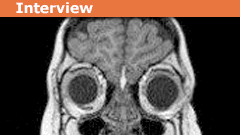
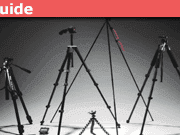
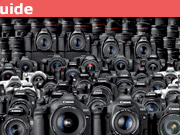
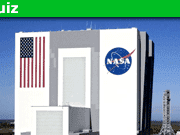
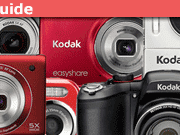

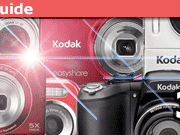
[QUOTE=”Greg Bernhardt, post: 5369398, member: 1″]Boring! Awkward always makes for a good story :biggrin:[/QUOTE]
Comedy: when something bad happens to someone else.
[QUOTE=”Andy Resnick, post: 5368863, member: 20368″]Exactly! Mr. Rogers would be nicer to me :)[/QUOTE]
Boring! Awkward always makes for a good story :biggrin:
[QUOTE=”Greg Bernhardt, post: 5368719, member: 1″]haha awkward :biggrin:[/QUOTE]
Exactly! Mr. Rogers would be nicer to me :)
[QUOTE=”Andy Resnick, post: 5368718, member: 20368″]Well, yes. At the time though, it didn’t seem like it. He wasn’t laughing, for example. Not even smiling.[/QUOTE]
haha awkward :biggrin:
[QUOTE=”Greg Bernhardt, post: 5368717, member: 1″]Why would he say this other than a joke?[/QUOTE]
Well, yes. (Edit- now it’s a funny story!) At the time though, it didn’t seem like it. He wasn’t laughing, for example. Not even smiling.
[QUOTE=”Andy Resnick, post: 5368716, member: 20368″]He looks right at me and says: “I’m sorry I got you interested in physics”.[/QUOTE]
Why would he say this other than a joke?
[QUOTE=”atyy, post: 5368469, member: 123698″]What happened with Michael Turner (who is he)?[/QUOTE]
[URL=’https://en.wikipedia.org/wiki/Michael_Turner_%28cosmologist%29′]https://en.wikipedia.org/wiki/Michael_Turner_(cosmologist)[/URL]
Here’s the whole humiliating story- for what it’s worth, he probably has no recollection of this.
There was a series on public television titled (I think) “The Early Universe” that came out when I was 14 or 15, Michael was one of the talking heads on the show. Watching it, I immediately lost interest in everything non-physics: from that moment, I knew exactly what I wanted to do for a career.
Now fast-forward 20 years, I’m at a public lecture given by Steve Weinberg. After his talk, there was a wine-and-cheese social event that I wandered into (for the free wine), and I’m looking around the room and who do I see? Michael Turner. I start gushing to my friends about how I saw this show when I was a kid, he was on it, blah blah blah. So they convince to go and tell him how much the show meant to me. I should mention that none of us were inebriated at all- I went though this stone sober.
I take a deep breath, tell myself he may enjoy hearing how he made a difference in some kid’s life, and start walking. I introduce myself, tell him how that PBS show made me interested in physics, and I just wanted to personally thank him for inspiring me.
He looks right at me, very serious. He says: “I’m sorry I got you interested in physics”.
Then this giant hole in the earth opened up and I fell in.
True story. I’ve since convinced myself that his comment was meant to be a light-hearted joke.
[QUOTE=”Greg Bernhardt, post: 5368216, member: 1″][USER=20368]@Andy Resnick[/USER] btw, is the GoPro waterproof?[/QUOTE]
Not by itself. All those cameras come with a plastic enclosure, tho, and when used correctly the camera can be used underwater no problem. Not sure how deep it can go- I’ve only taken it down 4 feet at most. When I’m done I wash the (still enclosed) camera off with fresh water to get any sand/salt/crud off, then dry and open the enclosure. Sometimes there’s a bit of sand in the gaskets, easily brushed off.
[USER=20368]@Andy Resnick[/USER] btw, is the GoPro waterproof?
What happened with Michael Turner (who is he)?
Die Antwoord! Didn't see that one coming! :)